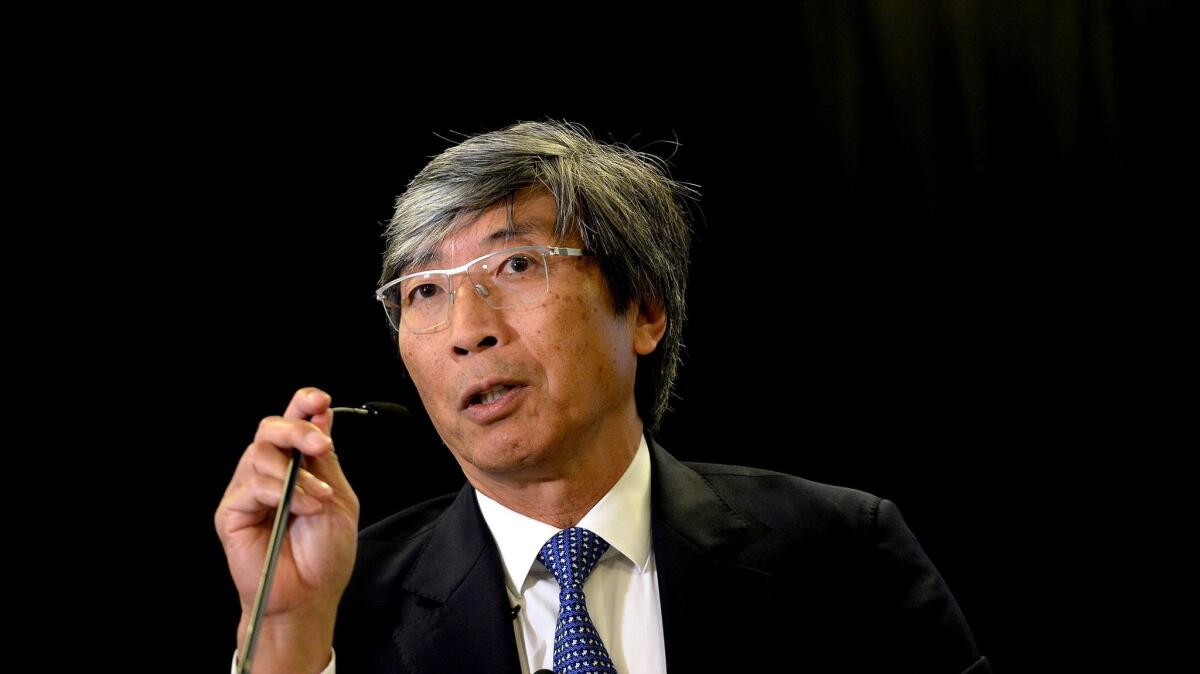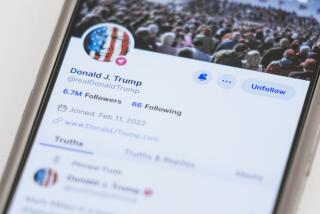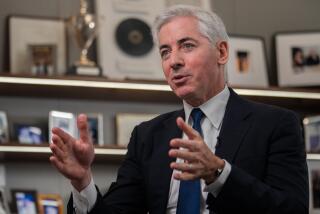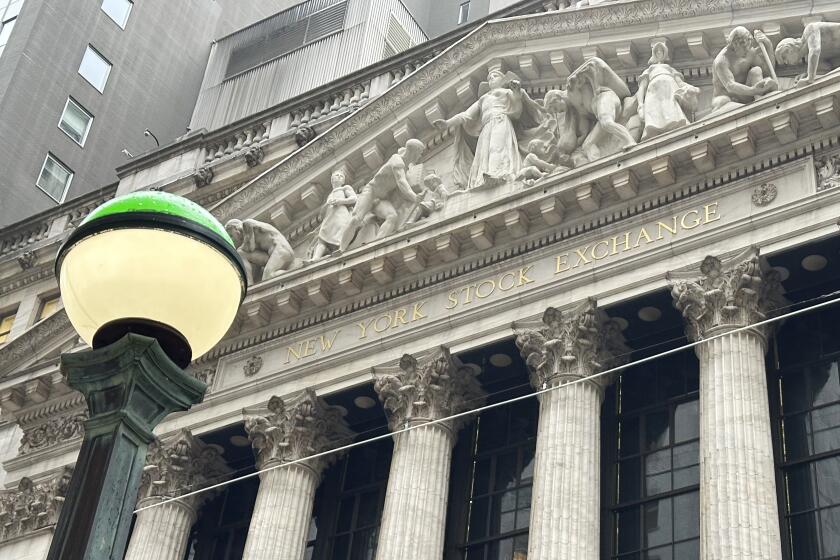Soon-Shiong biotech company’s stock plunges after report

Shares of Patrick Soon-Shiong’s biotech firm plunged this week after a news report raised questions of whether the Los Angeles billionaire had used a donation to a university to artificially inflate the outlook for the company’s operations.
STAT, a news group affiliated with the Boston Globe, reported Monday that Soon-Shiong and his charitable foundations gave the University of Utah $12 million for genetic disease research in 2014. The university later paid $10 million of that amount to NantHealth, a Culver City company founded by Soon-Shiong.
In November, NantHealth told investors that the company had received 524 orders for one of its key products — a genetic test known as GPS Cancer — during the last three months. One-third of those orders came from the University of Utah deal, Soon-Shiong told investors during a conference call.
In an interview, Soon-Shiong called the STAT story “maliciously false.” He said his foundations had given the money to the university out of “a desire to make this knowledge available to scientists throughout the world.”
“I’m befuddled by any other motivation that could be perceived,” he said.
On Tuesday, NantHealth’s stock closed at $4.94 — down 10% for the day and down 31% since the report was published before the markets opened Monday. The stock is now trading at roughly a third of its initial offering price of $14 in June 2016.
Soon-Shiong is the second-largest shareholder and vice chairman of Tronc Inc., which owns the Los Angeles Times. On Feb. 28, he agreed to buy 950,000 Tronc shares from downtown L.A. investment firm Oaktree Capital Management, which was critical last year of Tronc Chairman Michael Ferro’s rejection of a buyout offer from rival publisher Gannett Co.
The stock purchase is subject to a waiting period, according to a filing with the Securities and Exchange Commission. When the deal closes, Soon-Shiong would control 6.7 million Tronc shares, representing an 18.5% stake in the company.
NantHealth’s GPS Cancer test uses supercomputers to analyze the DNA of patients’ tumors in an attempt to find drugs that work against their diseases.
But sales of the test so far have been slow and the company’s losses continue to pile-up. In an earlier story in February, STAT wrote about how Soon-Shiong had aggressively promoted the test through a national cancer research effort he launched last year.
In a November press release, NantHealth pointed to the 524 orders for the test to tout its “rapid adoption.”
The work that Soon-Shiong funded in Utah did not involve the cancer test, according to the STAT report. Instead it was aimed at analyzing the genomic profiles of a thousand individuals with a myriad of rare and life-threatening diseases, including Lou Gehrig’s disease, autism and different types of cancer.
A university scientist involved in the research told STAT she did not understand why NantHealth would count the work as orders for the cancer test.
But Soon-Shiong told The Times that the gene sequencing work for the university was done on the same machines that perform the cancer test.
The contract did not specify that NantHealth would perform the work. The university said it had tried to look for another provider to perform the genomic sequencing but chose NantHealth because it was the only company that met the contract’s detailed requirements.
Soon-Shiong said the contract was not worded with the intention that his company would win the work. The contract’s terms had been written with help from the university’s scientists, he said.
Jen Hodson, a NantHealth spokeswoman, said the agreement with the university “was fully vetted by attorneys on both sides.” She said the contract had been disclosed in securities filings made before the company sold shares to the public in June.
A NantHealth executive told investors during the November conference call that none of the university’s payments had been included in the company’s revenues.
Julie Kiefer, a spokeswoman for the University of Utah, said Tuesday that Soon-Shiong’s charitable contribution resulted in important scientific work.
“The quality of the research exceeded expectations and benefited scientific discovery,” she said.
Kiefer added that it was “not the university’s role to advise the Soon-Shiong foundations or NantHealth on the tax consequences of these transactions.”
Soon-Shiong, a former UCLA oncologist, became a billionaire after selling two pharmaceutical companies: APP Pharmaceuticals Inc. in 2008 and Abraxis BioScience Inc. in 2010.
He now owns a web of biotech companies, including NantHealth and NantKwest, which sold shares to the public in 2015. He also holds a minority stake in the Los Angeles Lakers.
At least two law firms said this week they are investigating whether NantHealth violated securities laws and are considering whether they will file lawsuits on behalf of investors who have lost money.
Follow @melodypetersen on Twitter







